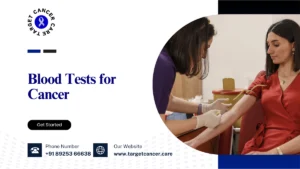Oral Cavity Cancer (Mouth Cancer)
- Epidemiology – The Tamil Nadu Picture: In India, oral cavity cancer is the most common cancer among men, and Tamil Nadu is one of the states where it is seen very often. Nationally, India contributes nearly one-third of the world’s oral cancer cases. In Tamil Nadu, many cases are linked to habits like betel nut chewing, tobacco (both smoking and chewing), and alcohol. These cancers are often seen in men from rural areas, though women are not spared.
- Why Does This Cancer Develop: The lining of the mouth is very delicate. Constant irritation from tobacco, betel nut, or alcohol is like repeatedly scratching the same spot — over years, the cells change and may turn cancerous. Other reasons include ill-fitting dentures, HPV virus infection, and poor oral hygiene.
- How Doctors Diagnose It: Most people notice a non-healing ulcer, a white or red patch, or swelling in the mouth. In Tamil Nadu, oral cancer screening camps (often free) are organized in villages and cities, so people can be checked early. Doctors confirm the diagnosis by oral examination, endoscopy if needed, biopsy, and imaging (CT/MRI/PET).
- Staging – How Doctors Decide: Cancer is like a fire: Stage I–II means the fire is only in one room (early stage), Stage III–IV means it has spread to other rooms or outside (advanced). Doctors use TNM staging but also consider the patient’s nutrition and health.
- Treatment Journey: Early cancers: Surgery is often curative. Advanced cancers: Combination of surgery + radiotherapy ± chemotherapy. Reconstruction: Surgeons rebuild the face or jaw using tissue flaps. Tamil Nadu has excellent microvascular reconstruction expertise (in Chennai, Madurai, Coimbatore).
- After Treatment & Survivorship: Regular follow-ups every 2–3 months in the first year, then less often. Doctors check for recurrence, speech/swallowing problems. Speech therapy, diet counseling, and dental rehabilitation are part of recovery. Many survivors return to work and live healthy lives.
Laryngeal Cancer (Voice Box Cancer)
- Epidemiology: Not as common as oral cancer, but important because it affects the voice. In India, thousands of new cases occur yearly, mostly in men over 50. In Tamil Nadu’s cities, smoking and pollution contribute to rising numbers.
- Why Does It Happen: The voice box (larynx) is delicate and easily damaged by smoking, alcohol, and occupational exposures (chemicals, dust, fumes).
- Diagnosis: A hoarse voice lasting more than 2 weeks is a danger sign. Doctors use laryngoscopy, biopsy, and imaging.
- Staging & Decisions: If the cancer is small and only on the vocal cords, voice-preserving treatment is possible. If advanced, more aggressive treatment is needed.
- Treatment Journey: Early stage: Radiotherapy or laser surgery can cure and preserve voice. Advanced stage: Surgery (laryngectomy – removal of voice box) with chemotherapy/radiotherapy. In Chennai, advanced options like voice prostheses allow patients to speak again.
- Survivorship: Though losing the natural voice is difficult, patients adapt with speech training or prostheses. They can work and socialize normally, many becoming advocates.
Pharyngeal Cancer (Throat Cancer)
- Epidemiology: The throat is a common site for cancer in India. In Tamil Nadu, cases are often linked to tobacco and alcohol, and more common among rural men.
- Why Does It Develop: Major causes include tobacco, betel nut, and alcohol. HPV infection plays a role, especially in oropharyngeal cancer. Poor nutrition and chronic throat irritation also increase risk.
- Diagnosis: Patients present with difficulty swallowing, pain, or a lump in the neck. Doctors use endoscopy, biopsy, and imaging (CT/MRI/PET).
- Staging & Decisions: Doctors check tumor depth, lymph node involvement, and distant spread. This guides whether surgery, radiotherapy, or combined treatment is best.
- Treatment Journey: Early stage: Radiotherapy or limited surgery. Advanced stage: Chemoradiation is standard, sometimes followed by surgery. Tamil Nadu cancer centers provide global-standard concurrent chemoradiation.
- Survivorship: Swallowing therapy, diet changes, and speech therapy are crucial. Family support helps patients cope with weight loss, weakness, and voice changes.
Thyroid Cancer
- Epidemiology: Thyroid cancer is more common in women, usually between 20–50 years. In Tamil Nadu, it is seen more in coastal districts. Papillary thyroid cancer is the most common type and has an excellent prognosis.
- Why Does It Develop?: Caused by genetic changes in thyroid cells. Rarely due to radiation exposure. It is not linked to lifestyle habits like tobacco or alcohol.
- Diagnosis: Patients usually notice a neck swelling. Diagnosis is confirmed using ultrasound, fine needle aspiration cytology (FNAC), and thyroid scans.
- Staging & Decisions: Doctors check tumor size, lymph node spread, and age of the patient. Even advanced cases often have excellent prognosis.
- Treatment Journey: Main treatment is surgery (thyroidectomy). Radioactive iodine may be given in selected cases. Lifelong thyroxine tablets are prescribed. Tamil Nadu offers advanced endocrine surgery and minimally invasive thyroid surgery.
- Survivorship: Follow-up is lifelong but simple. Most patients live long, healthy lives with regular tablets and check-ups.
Salivary Gland Cancer
Epidemiology
Rare but important. Seen in both men and women, usually as a painless swelling near the jaw or ear.
Why Does It Develop?
Exact causes are unclear. Risk factors include radiation exposure, certain occupations (rubber, chemical industries), and genetic factors.
Diagnosis
Doctors examine clinically, then confirm with MRI/CT and biopsy.
Staging & Decisions
Staging depends on tumor size, spread to lymph nodes, and nerve involvement.
Treatment Journey
Surgery is the main treatment, sometimes followed by radiotherapy. Surgeons aim to preserve the facial nerve controlling expression. Tamil Nadu centers with microsurgery expertise achieve both cure and cosmetic results.
Survivorship
Most patients live well after treatment. Some may need physiotherapy if facial nerve weakness occurs. Quality of life is generally excellent.
Closing Note
Head & Neck cancers are largely preventable. If tobacco, alcohol, and betel nut are avoided, most oral, throat, and voice box cancers will disappear. In Tamil Nadu, world-class cancer care is available at government hospitals (Adyar Cancer Institute, Madras Medical College) and private centers (Apollo, SIMS, CMC Vellore, etc.). Early detection saves lives. With timely treatment, most head & neck cancer patients can live a full, meaningful life.




